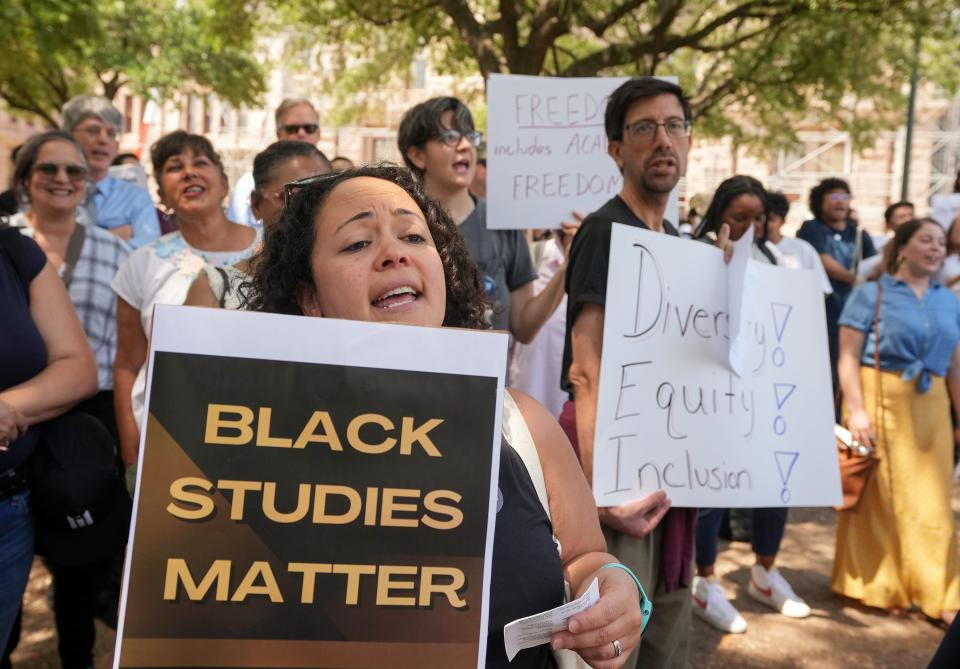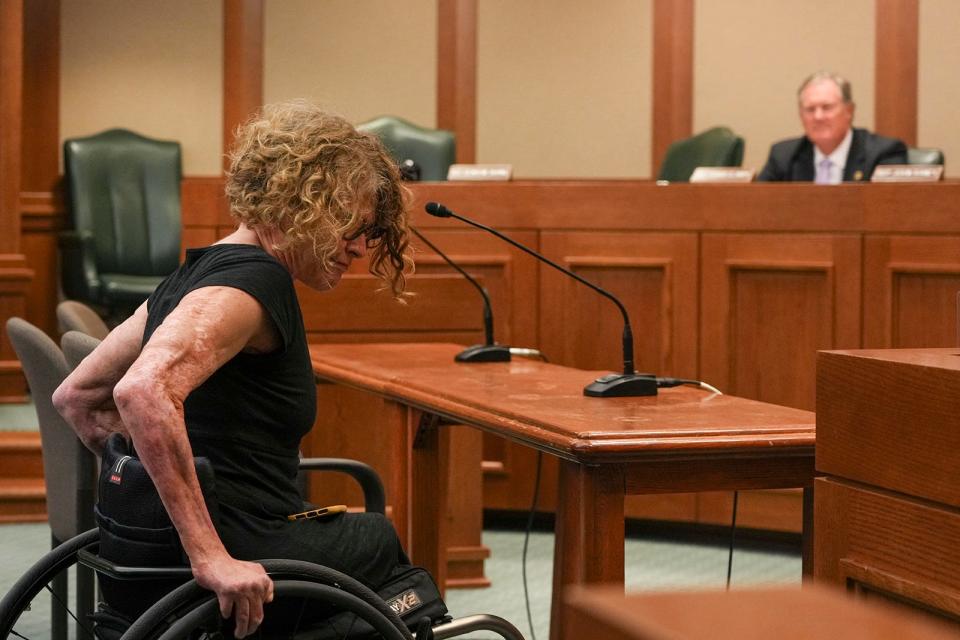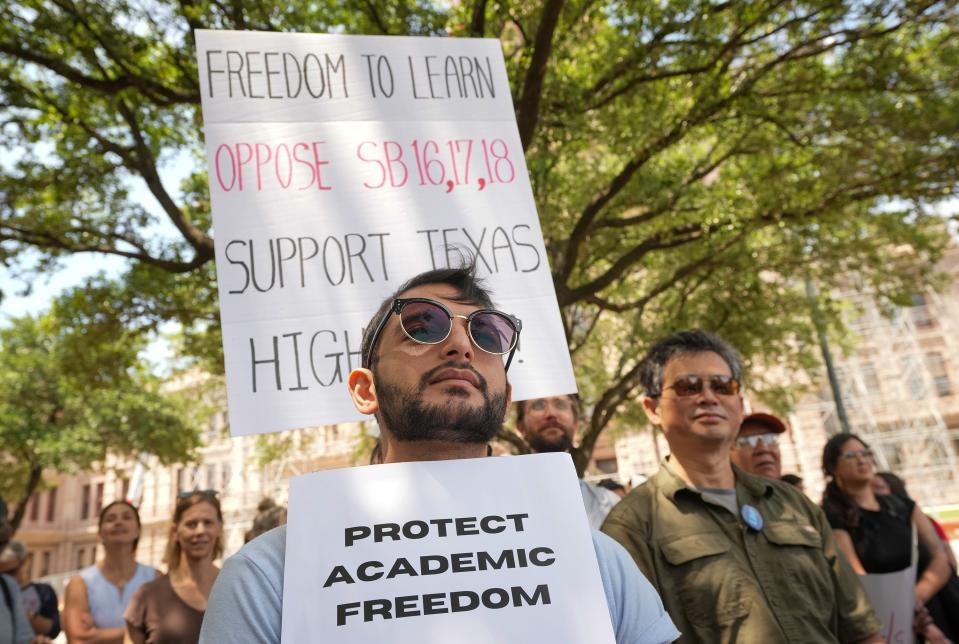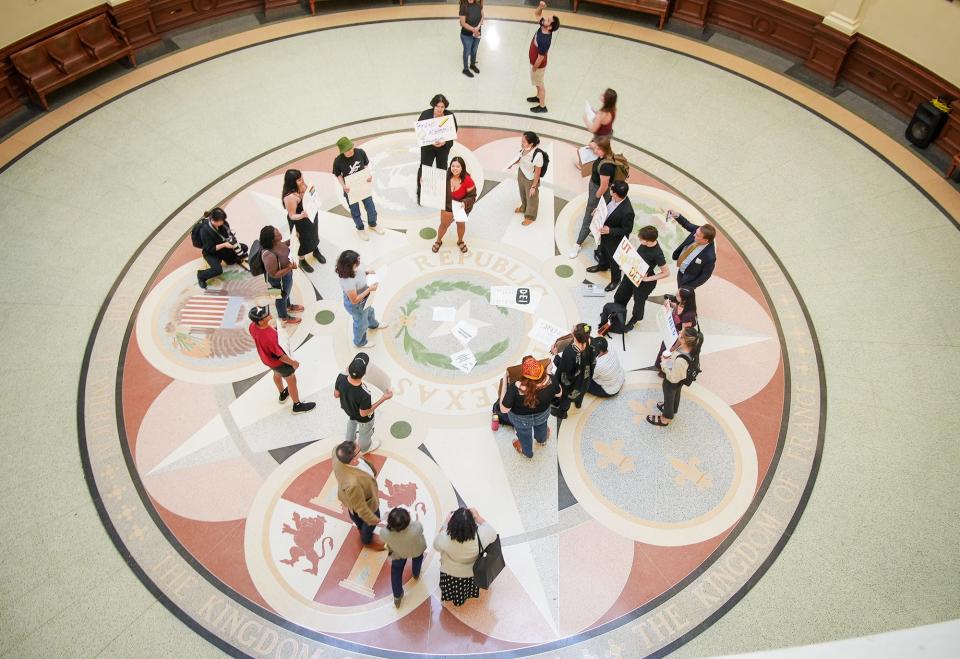Belonging for all: What UT is changing to comply with the state's DEI ban at colleges
The University of Texas is renaming or eliminating several of its campus programs that have long encouraged and welcomed students from diverse backgrounds after the Texas Legislature in the spring passed a controversial law banning diversity, equity and inclusion offices at public universities beginning Jan. 1.
Senate Bill 17 prohibits universities from having any office “promoting policies or procedures designed or implemented in reference to race, color, or ethnicity." It also bans training, programs or activities implemented in reference to race, color, ethnicity, gender identity or sexual orientation.
Starting Jan. 1, UT's Division of Diversity and Community Engagement — which was set up to create an inclusive community on campus and encourage a robust learning environment — will be renamed the Division of Campus and Community Engagement, according to a message obtained by the American-Statesman on Thursday that the school sent to its community.
The division's website will be updated to reflect the new name, and it has removed mentions of race, diversity and ethnicity, favoring instead terms focused on belonging and access for all.

The division initially helped the university "meet its mission of service and create pathways for success for underserved students throughout the state," according to the school's website.
UT's Gender and Sexuality Center will close Jan. 1, and the Women's Community Center will take its place, according to a statement Friday from the center on its Instagram page.
The center said it is making spaces for students to process the changes and offer feedback in person, in writing and virtually.
"We understand this change can feel daunting and bring up a lot of emotions for what the future of our center will look like," the statement said. "We remain committed to serving all our students, both current and new, and welcoming them into the center."
The Gender and Sexuality Center said the new center is for all Longhorns, including LGBTQ+ students. UT has also updated its website to reflect that the Women's Community Center is taking the Gender and Sexuality Center's place.
The university's Multicultural Engagement Center website is no longer available. The center houses six university-sponsored student groups ― the Afrikan American Affairs, Asian Desi Pacific Islander American Collective, Latino Leadership Council, Native American and Indigenous Collective, Queer People of Color and Allies, and Students for Equity and Diversity — and it's unclear whether it will be shuttered or reprogrammed.

Student and faculty groups were told they must comply with SB 17 or they will lose their UT sponsorship and permission to use university logos, according to a document obtained by the American-Statesman in November.
The multicultural center was founded in 1988 "to empower, educate, & engage historically marginalized communities for their academic and personal success," according to its Instagram account.
Critics of the state's DEI ban say it removes institutional support for students who have been historically marginalized and is a threat to higher education in Texas. Proponents of SB 17 say it removes special benefits for certain groups and allows the same treatment for all.
All public universities must submit proof of their compliance with SB 17 to the Legislature and the Texas Higher Education Coordinating Board before they can spend any money the state appropriated to them for their fiscal year budget, the law states.
UT, community engagement
LaToya Smith, UT's Division of Diversity and Community Engagement vice president, said in a message to the students, faculty and staff that the division will be known by its new name starting Jan. 1 "to better reflect our work's new scope, nature, and reach."

"Our name emphasizes that we are here to serve all Longhorns and all Texans as we deepen and broaden the ways that our University facilitates engagement on campus and across a wide range of communities," Smith said in the message, adding that the focus on engagement "will ultimately increase our impact while leveraging the strengths of the University."
Smith said the Campus and Community Engagement Division's goal will be to enable more community members and UT students, faculty, staff and alumni to engage with the university and find belonging. As an example, Smith lists the recently launched Disability Cultural Center, "the first of its kind in Texas," which supports, advocates for and recognizes people with disabilities as an integral part of the UT community. Her note also cited UT's efforts to support first-generation students.
"It is important to reiterate what will not change: our Division's commitment to fostering access and belonging," Smith said.
Women's Community Center
The new website for UT's Women's Community Center says it will become a place "for Longhorns of all genders to connect, find resources, and get support around experiences of intersectionality, community, and gender solidarity," and offer personalized guidance to students and student organizations.
The Gender and Sexuality Center, which will be replaced with the Women's Community Center, opened in 2004 out of a collaboration with the Women’s Resource Center and the GLBTA Agency “to demonstrate greater student demand and establish an organization that would have greater long-term sustainability," according to its website. Its mission was to "provide opportunities for all members of the UT Austin community to explore, organize and promote learning around issues of gender and sexuality."

Organizations focused on gender are exempt from SB 17 due to Title IX protections. As the UT System's September guidance states, a group such as “Women in STEM” can exist assuming that a student of any gender would be accepted if asking to join. The Women's Community Center's website pitches it as a community for all and a place where students can find essential resources and support.
The Gender and Sexuality Center's statement said UT employees will not be allowed to do training around race, sexual orientation or gender identity, including ally training, but student groups can still host such instruction. It said that people will still be allowed to display pride flags in their offices as well.
"We've treasured every moment of serving our communities at UT Austin as the Gender and Sexuality Center and are committed to continuing to support all of our students during this transition," the statement concluded.
'Compassion and respect for all of our community members'
UT President Jay Hartzell, in a long-awaited message about SB 17, said Dec. 1 that he is “confident” that the school's leadership can effectively support student and faculty belonging and success.
“As with all new laws, I fully expect that there will be divided opinions on our campus about both the law itself and its eventual impacts on our University. But it is the law, and with compassion and respect for all of our community members, we will comply,” he said.
Hartzell's note punctuated what will not change on campus: UT’s commitment to attracting staff members from “diverse backgrounds and perspectives,” outreach to prospective students, academic courses, research and creative work, guest speakers, "provision of healthcare to patients," and value of belonging for all Longhorns. He said state, federal and historic dates, events and holidays — including Black History Month, Women’s History Month, Pride Month and Hispanic Heritage Month — will still be celebrated at the school.
Though Hartzell did not provide specifics on what else will change on campus, he said he will reach out again in January, and university leaders will communicate as needed along the way.
This article originally appeared on Austin American-Statesman: Diversity, equity and inclusion: UT alters programs to comply with ban

